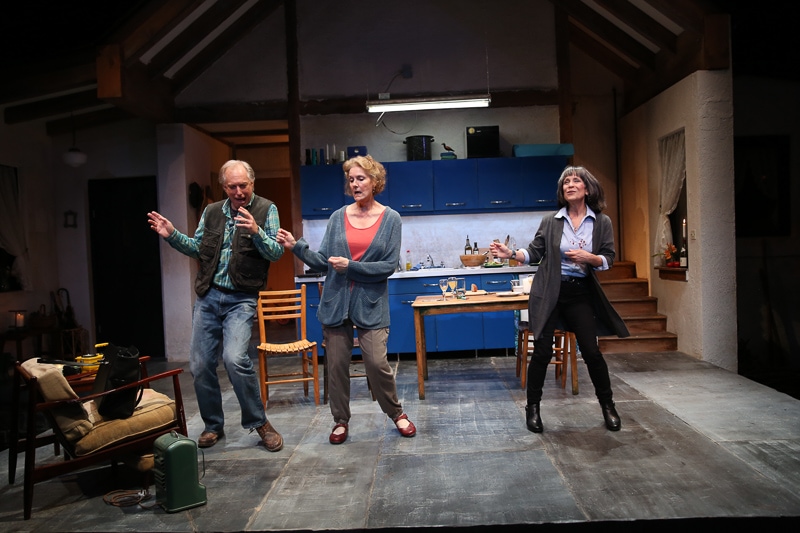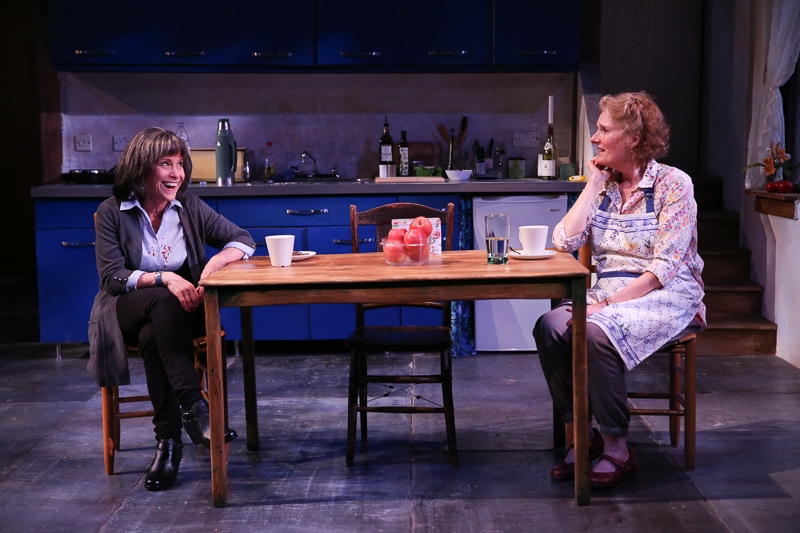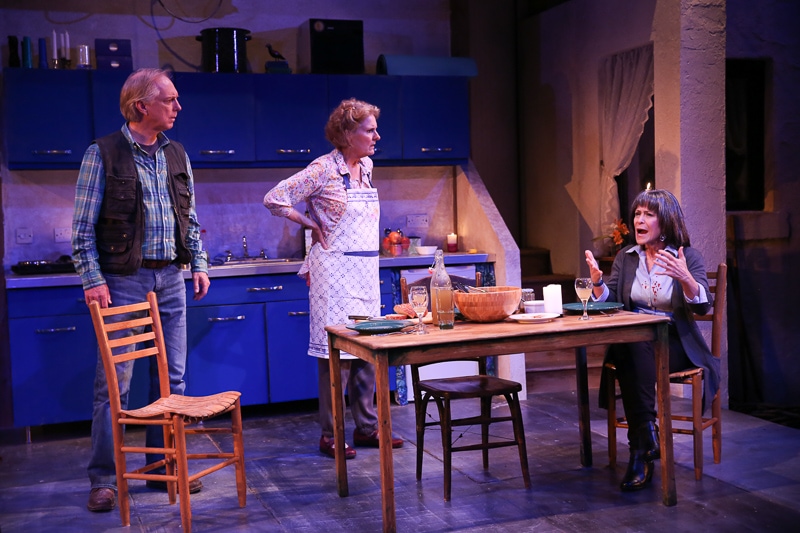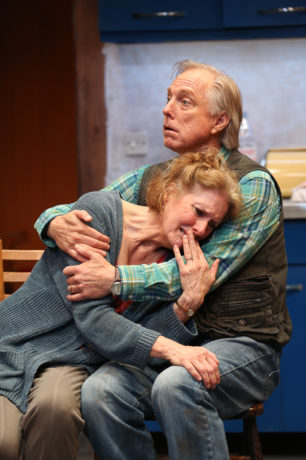Three retired nuclear physicists meet in a quaint cottage not far from the nuclear power plant where they once worked and where a catastrophe has occurred. Earthquake, tsunami, tidal wave, radiation—like Fukushima, Japan, except seaside in England. And so there goes the neighborhood. It sounds like the setup for an apocalyptic sitcom. And though indeed there are eruptions of smart laughs, dry humor, and even a delightful dance number in what follows, the real explosions go off in one’s mind as the implications of this electrifying thriller sink in.

Lucy Kirkwood is one of those playwrights you can’t wait to know what they’ll tackle next. Her Chimerica at Studio Theatre and NSFW at Round House Theatre were dazzling dramatizations of epically consequential issues on an emotionally intense human scale. This track record would be reason enough to check out The Children without reading another word of this rave.
Long married Hazel and Robin have evacuated their farm, which is in the nearby “exclusion zone,” and are making do conserving electricity, which comes on after 10. With survivalist optimism, Hazel does yoga and prepares healthful meals and Robin takes the Geiger counter along when he goes to check on the beloved herd of cows they left behind, one of whom they named after the theoretical physicist Heisenberg.

At rise, Robin is off making his cow rounds when Hazel is surprised by a visit from Rose, a former coworker from the now-lethal power plant. Hazel hasn’t seen Rose in 38 years. Why has she come here? What is she up to? What does she want? Not till near the end do we, along with Hazel and Robin, find out, and it’s a breathtaking bombshell of an ask—which had best remain unforeseen. But couldn’t Rose have blurted it out sooner? Like maybe ten minutes in? Maybe so, but then there’d be no play—i.e., we’d be deprived of all the riveting disclosures about these three retirees that Kirkwood’s spellbinding script delivers.
Jeanne Paulsen’s Hazel is a chattering bundle of nerves. Her unease is unceasing. Paulson plays Hazel’s apprehension so completely it becomes the paramount emotion of the play; and her performance, of intensifying interest. But it’s Hazel’s sustained suspicion and simmering hostility toward Rose that cinch our sense of suspense.
Naomi Jacobson’s Rose, meanwhile, emanates enigmatic composure. She is uncannily familiar with the place, she knows exactly which cupboard has the glassware, and that unnerves Hazel further. Hazel realizes that Rose has been here when Hazel wasn’t. Before Hazel and Robin married, as Hazel knew, Robin and Rose were an item But it turns out this humble abode, now a pied-à-terror, was where Robin and Rose would continue their affair.

The vertex of this romantic triangle is Richard Howard’s Robin, an amiably brainy lunk. He and Hazel have raised four children, the oldest a troubled 38-year-old daughter. These were to be the couple’s sunset years, lived out in bucolic bliss. (The script’s choice observations about aging—e.g., Hazel to Robin: “You are past your sell-by date”—audibly amused the AARP-esque audience I was with.) Then everything that could go wrong did.
Enfolding these characters’ backstories—of domesticity, health crises, marital distrust—is Kirkwood’s stirring evocation of humans’ irresponsibility to the Earth and the cost of overconsumption (“We cannot have what we want just because we want it,” says Hazel pointedly, a dig at her husband’s betrayal as well). The children of the title are the legions who’ll bear the legacy left by their ecologically reckless forebears.

Electrical power lines are prominent in scenic designer Tom Kamm lived-in kitchen set, and there comes a stunning stagecraft effect that is too mindblowing to reveal. Lighting Designer Miriam Nilofa Crowe artfully shifts time into candle-lit evening then shocks the eyes with a fluorescent glare when the power surges on. Sound Designer Broken Chord establishes the natural environment of nearby sea surf and seagulls and gets a Geiger counter to click on cue. Costume Designer Nephelie Andonyadis gives Rose remarkably truthful clues to her character’s past. And Director David Muse absolutely astonishes with his nuanced handling of interpersonal moments among and between these precisely cast actors.
Lucy Kirkwood’s The Children is a captivating masterpiece of small-cast theater that’s actually about the stage that is our planet. Perhaps its most urgent and disquieting aspect is the way its three very intelligent characters come to realize what they cannot know about what they have done.
This is a play whose see-by date is right now.
Running Time: 90 minutes, with no intermission.
The Children plays through June 9, 2019, at Studio Theatre, 1501 14th St NW, Washington, DC. For tickets, call the box office at (202) 332-3300, or go online.




